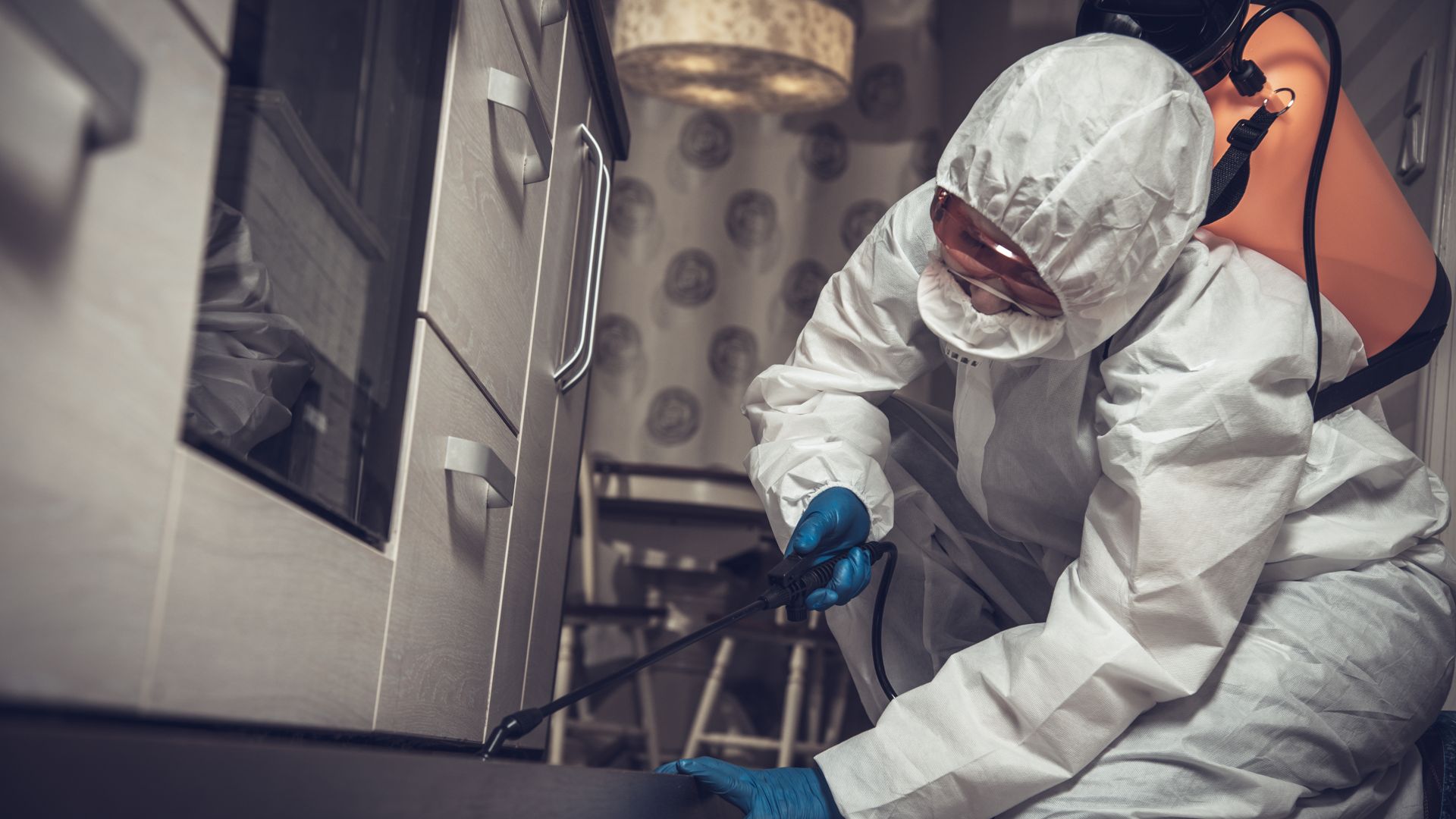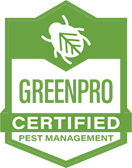
How Do I Get Rid Of Fleas In My Roseville Home?
A flea problem is the kind of problem that can get out of hand. When you get fleas, you may go to the internet, as many people do, and find resources for all-natural remedies. You may apply these solutions that work for others and have little or no success. You may then turn to control products and get a few suggestions from your local pet store. Some of the products you might use are a powder, spray, collar, or flea bath. But, after applying these, you may still have fleas in your home. At this point, you might consider going back to the internet to see if you missed something. You might read about new ideas to try, like setting up traps. You might see lots of fleas caught in your traps, only to realize that you keep seeing fleas and there is no end to them. We don't know what your flea problem will look like, but it is likely to look a lot like this one. Fleas are tricky to control because they are mysterious in the way they behave and multiply. Join us today as we strip away the mystery and show exactly how fleas act inside your home. We'll also tell you how to get rid of them. For immediate answers regarding flea control in Roseville, remember that we're here to assist you. Neighborly Pest Management provides all of the services you need. Contact us by phone or online for help.
What Are Fleas?
.2404180829550.jpg)
The majority of our discussion today will have to do with defining this question. Why? Because the more you understand these insects, the less of a mystery they will be to you, and the less likely you are to use ineffective home remedies or self-help suggestions from the internet. Consider these facts and how they relate to flea control.
- Fleas are blood-eating insects that live on a host animal. They prefer animals with fur because densely packed hairs are a perfect environment. You aren't likely to ever find a flea living in the hair of a human.
- The hair density is too low. You won't need to focus any effort on controlling fleas on your head. A shampoo and a rinse is enough to solve any problems.
- The most common species of flea that infests homes are cat fleas or Ctenocephalides felis. These fleas prefer cats and dogs, but they also bite other animals and even humans. Fleas can go from one animal to another or bite you while they wait to have access to your animals after treatment.
- Fleas are built for moving through hair. They are tall and thin and have legs that grip the hair. It is hard to pull a flea off your pet because of this ability. When applying some home remedies, a flea can outsmart you by clinging to hair.
- Fleas can also hold their breath for over 24 hours. If you attempt to use a bath with all-natural concoctions, they can easily survive a long soak in a tub and may survive exposure to what you're using.
- Fleas have the ability to spring into the air. While the length they can jump may not seem like much compared to how large you are, fleas can jump as much as 100 times their body length. That is amazing.
- They can use this ability to spring onto your feet, ankles, and lower legs to bite you, which can allow fleas to survive in areas of your home you wouldn't expect, like your bathroom.
- Fleas aren't always insects. They start as little worms. The worms can't bite you. They get blood from the fecal matter of adult fleas, a material called flea dirt. When controlling fleas with a topical product, you may not get deep enough to get to where flea larvae hide.
- The most important life stage of a flea to understand is the egg. When a flea is in its egg, it is protected from many treatment products. What typically occurs with DIY treatments is that adult fleas and some larvae are eliminated, but the infestation continues when hidden eggs hatch.
Do you see what you're up against when fleas get into your home? If you have fleas in your rug or a chair, couch, or bed, they can bite you as they also bite your pets. When they bite you, they can present a risk to your health. Let's quickly look at how this works.


Ensuring your home and business are pest-free, explore our different service areas to see if we're local to you! Give us a call to get started!
Is It Dangerous To Have Fleas In My House?
The primary issue with fleas is that they bite, and flea bites are annoying. Perhaps you've noticed. Flea bites can get inflamed and itch like crazy. You can get them on your feet and legs if fleas are on the floor or on your back and arms when fleas hide in places where you sleep, lounge, or sit. If you continue to get flea bites over and over, you can develop a condition called anemia, which causes headaches, weakness, irritability, loss of appetite, numbness and tingling in appendages, problems concentrating, and more. Children bitten by fleas may not report these symptoms, and this is a risk you should track carefully. An infection can cause flu-like symptoms, such as chills, sweats, fever, sore throat, stiff neck, and cough. If you have kids, teach them to recognize what an infection looks and feels like.
While most bites only result in irritating and itchy wounds, there is a potential for disease transmission when fleas bite you. Fleas are known to cause murine typhus, bartonellosis, tungiasis, and more. They can also spread tapeworms. While fleas are mostly a threat to your pets, they can also impact the humans in your home. Take a moment to learn about these diseases on the CDC website to better understand the risks to your health.
-
Same-Day & Emergency Services AvailableWhen possible, we can provide prompt assistance to help with your pest solution needs.
-
Local, Family Owned & OperatedRooted in our local communities, we know the best solutions for the pests in our unique areas.
-
We Offer Organic Treatment OptionsEmbrace a eco-friendly approach with our range of sustainable solutions for your needs.
-
45+ Years of Industry ExperienceTrust in our seasoned knowledge and proven track record spanning over four decades.
Why Do I Have A Flea Problem In My House?
As you deal with fleas in your home, you'll need to consider fleas on the outside of your home as well. If you don't stop them from getting in, you will never completely stop the flea infestations inside your home. Here are a few insights that will help you better understand what is going on.
- Fleas enter your yard on wild animals. The eggs and flea dirt fall off the animals and land on the ground. If they land in the same area, the larvae can survive and develop into adult fleas.
- Fleas often develop in moist, shaded areas because these are where animals hide, and it is where flea larvae have the best chance of survival.
Some animals bring fleas inside homes with them. - The fleas that hatch outdoors grow into adults and wait inside their cocoons for an animal to pass by. They can wait in their cocoons for up to five months. When they sense a dog or cat, they break free, leap through the air, and climb into the hair of the animal.
- Inside your home, a dog or cat will spread fleas in the same way a wild animal does. The eggs and flea dirt will fall together, and fleas will develop. The most likely place for this to occur is where your dog or cat beds down. If your pet sleeps on your bed, that is why you have fleas in bed with you.
When you attempt to get rid of fleas in your home, you have to consider how fleas find their way inside and how they survive and reproduce inside your home. At this point, you should have enough information to apply a sustained treatment plan to stop the cycle of infestation.
What's The Best Way To Get Rid Of Fleas In My House?
When it comes to dealing with any pest in your home, it is always best to have a trained professional handle the problem. In the case of fleas, we provide two ways to deal with them. The first is on the inside of your home. We break the cycle of infestation by applying a residual material. It addresses any fleas that are currently infesting your home, and the material remains active to address any fleas that hatch later. Since one of the big challenges of controlling fleas is dealing with flea eggs, the treatment we use gets the job done.
After professional flea removal (or before you get an infestation), we can address the flea problem in your yard. We can apply a treatment around the exterior of your home to target the fleas that are hiding in moist, dark places. We can perform these treatments along with your general pest control all year long so that you are always protected.
Contact us to learn about our home pest control service options. We'll bundle the pests and give you coverage for all your pest concerns in one simple control plan. Jump to our contact page and reach out to us, or give us a call. We look forward to helping you keep your doggies, kitties, and home, free of fleas and other pests. Connect with us today.

Hear From Our Happy Customers
At Neighborly Pest Management, your satisfaction is our priority! See for yourself what our customers have to say about working with us.
-
“Nate is an excellent technician. He is a big reason we’re so happy with the service! Overall a great company and fair pricing.”- M.D.
-
“We have been using Neighborly Pest for many years. While we have had many competitors come to our door, we have no interest in changing. Doug has been our technician during our entire service, and he is absolutely the best, always friendly!”- Brittany A.
-
“I've never had a bug problem since I switched to Neighborly. Danny is an awesome technician! He has a great personality and explains things thoroughly and gives me clear and detailed answers to any questions I might have.”- Joe B.
-
“We’ve used Neighborly for a couple of years and have had outstanding service consistently throughout. Doug is mindful of our pets and kid's safety as well, making sure that our home is a safe environment for everyone except the pests!”- Greg
-
“Adam was fantastic! Super friendly and professional. I felt at ease and knew I could ask any question, no matter how dumb it sounded, and he was able to answer and provide more information based on my concerns.”- Erin D.
-
“Super friendly and professional. I appreciate the thoughtfulness and professionalism Adam displayed on our initial visit and feel confident he is taking excellent care of my home.”- Erin D.





